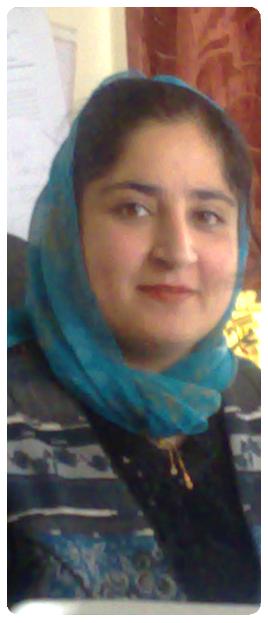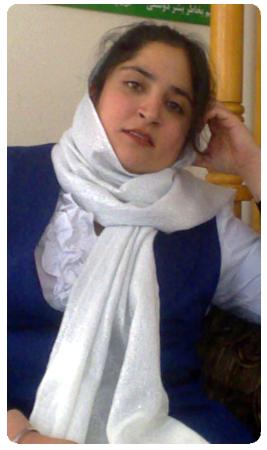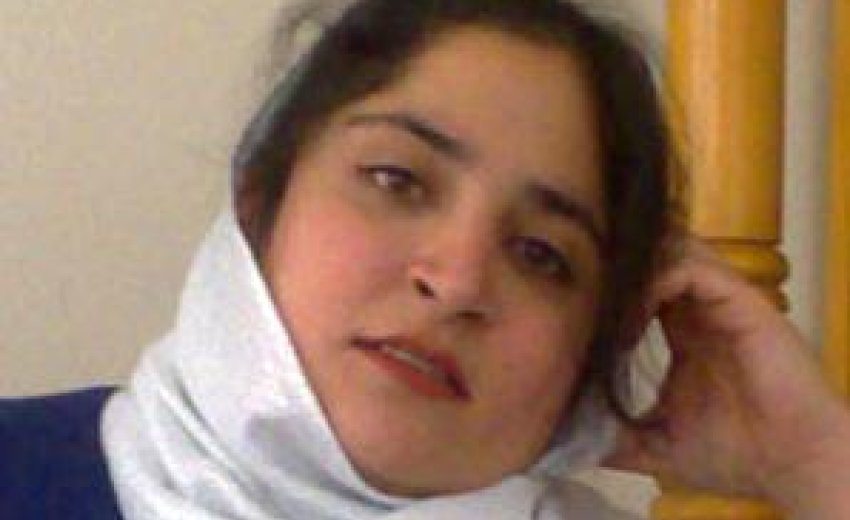 "It is difficult for a woman to be a pilot in Afghanistan. My father said it does not fit in with this country's culture," Dr Anarkali Kaur Honaryar tells me, sitting in her office at the Afghan Independent Human Rights Commission.
"It is difficult for a woman to be a pilot in Afghanistan. My father said it does not fit in with this country's culture," Dr Anarkali Kaur Honaryar tells me, sitting in her office at the Afghan Independent Human Rights Commission.
In some ways the high flyer has taken on a challenge much tougher than piloting planes.
She fights for women's rights in a society that remains staunchly patriarchal, and where many of her gender still breathe beneath their veils.
In May 2009, the 25-year-old was chosen by Radio Free Europe's Afghan chapter as their "Person of the Year". The award has made her a household name in Kabul.
Anarkali Kaur - a trained dentist - is one of about 3,000 Sikhs and Hindus who remain in Afghanistan.
Their number - and their prosperity - has significantly dwindled since 1991 when civil war broke out.
Before then, there were an estimated 50,000 Sikhs and Hindus in this ethnically diverse country and many ran successful businesses in Kabul, Kandahar and other cities.
But the outbreak of hostilities meant that most - including Anarkali's relatives - moved to safer places in India, Europe and Canada.
She has led campaigns for the civil rights of the embattled communities who stayed on, including one to get crematoriums built for their dead.
"Some people still think we are foreigners. They think we are Indians who are working and living here for a while. But we are Afghans too, and we should have all the rights and opportunities that other Afghans have," says the demure yet outspoken doctor.
She has grown up in turbulent times.
In the early 1990s, Afghanistan was a country at war, with no stable central government.
The provinces - including Anarkali's native Baghlan in the north - were ruled by warlords.
To make matters worse, swathes of the country were falling into Taliban hands.
Girls' schools were banned in Taliban strongholds and religious minorities felt threatened by their extremist Sunni Muslim ideology - Anarkali Kaur fell into both categories: a female and a non-Muslim.
Fortunately for her, Baghlan did not come under Taliban rule. She carried on her education in relative freedom and graduated from high school four years ahead of her peers. "I am grateful to my parents for supporting my education. Not all Afghan girls have been so lucky," she says.
"I am grateful to my parents for supporting my education. Not all Afghan girls have been so lucky," she says.
Once the Taliban were overthrown in 2001, Anarkali went to Kabul University to study medicine. She was part of the Loya Jirga (grand council) that selected the interim government to replace the Taliban.
"The situation for women has improved since the Taliban days. Now if the Karzai government does not listen to us, at least we can appeal to human rights groups," she says.
And so she joined the Afghan Independent Human Rights Commission in 2006.
"They know I am a Sikh but they still trust me with their most personal problems," she says of the hundreds of mostly Muslim women she meets.
"The culture here is loaded against women. We try to solve their problems, but we also need to change the laws."
Awareness of existing laws is also at a premium here - the female literacy rate is less than 20%.
Anarkali recounts how an illiterate woman had travelled a long way to Kabul to meet her. The woman's husband wanted to divorce her when she was expecting their child.
"She didn't know that Afghan laws state a husband cannot divorce his pregnant wife. He has to wait till the child is at least two months old. We helped her secure her rights," she says, with a hint of pride.
While conferences have taken her to different parts of the globe, Dr Anarkali Kaur Honaryar regrets not travelling enough in the land of her ancestors - Punjab and India.
A visit to the Golden Temple in Amritsar - Sikhism's holiest shrine - is top of her to-do list. And of course, the Taj Mahal.
[Courtesy: BBC]
February 11, 2010
